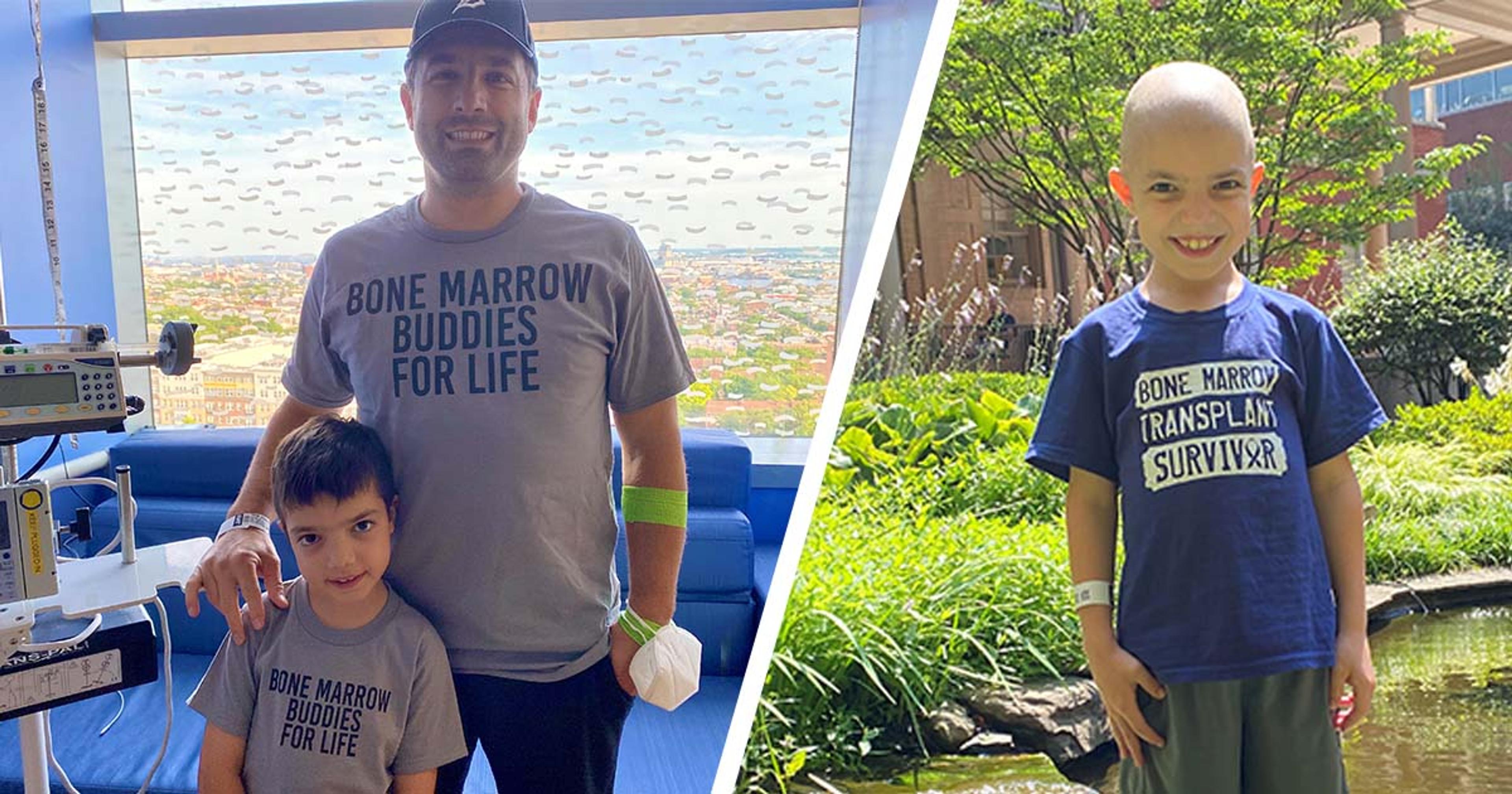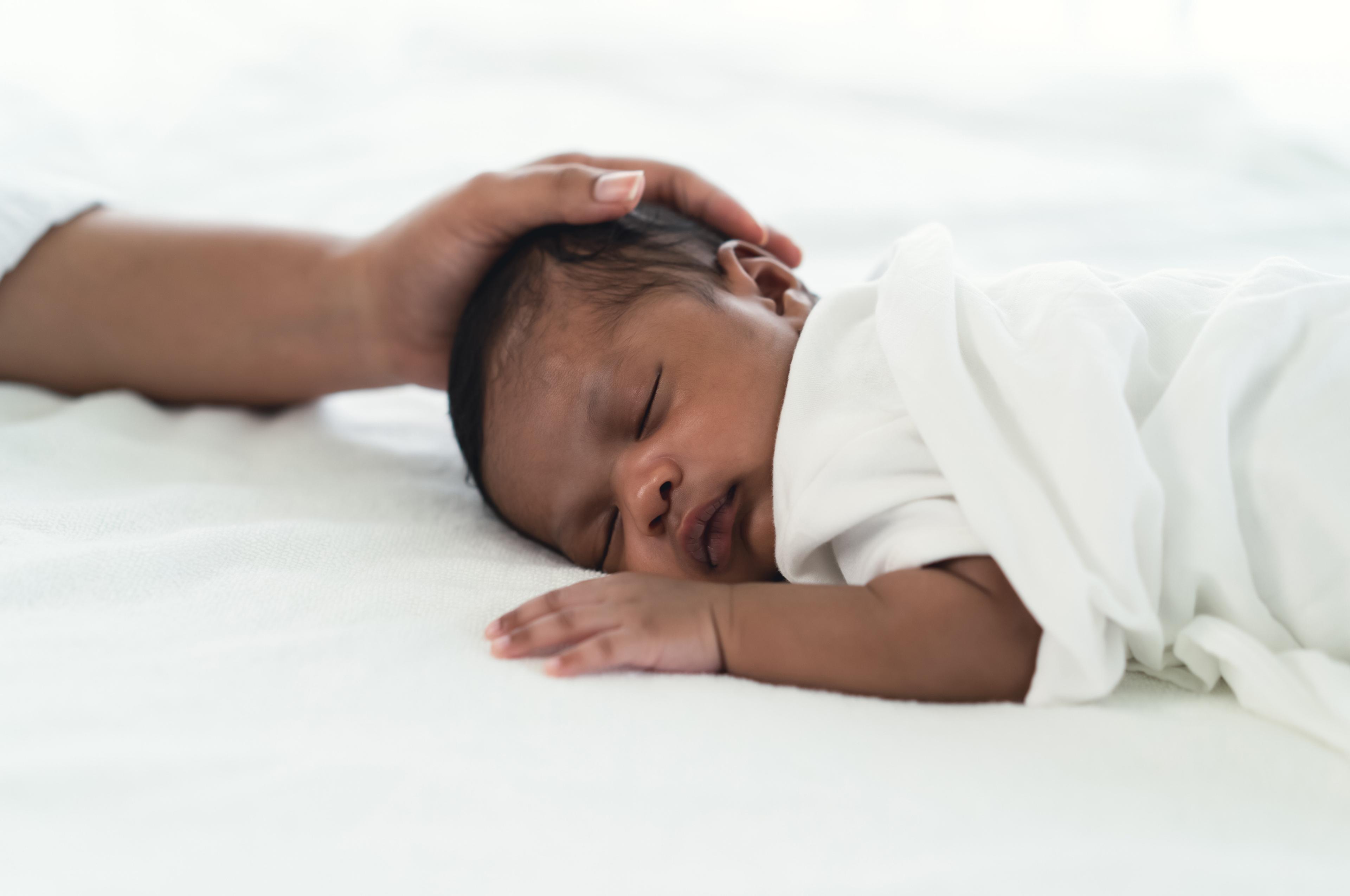National Donor Day: Michigan Child Benefits From Bone Marrow Registry in Unexpected Fashion
Jake Newby
| 5 min read

Without ever even donating bone marrow, the selflessness of a stranger living 5,600 miles away reversed the fortunes of one Romeo, Michigan family forever. Giorgio Kozak spent a good portion of his first eight years of life sitting inside hospital rooms, where he’s received over 100 blood transfusions. Giorgio was born with beta thalassemia, a rare, genetic blood disorder that reduces the body’s hemoglobin production. “Basically, his diagnosis was that he would be transfusion dependent,” said Giorgio’s mother, Rosanna Kozak, during a phone interview with Blue Cross Blue Shield of Michigan. “So, by the time he was 3, he would need blood transfusions every three weeks for the rest of his life. We were told it was curable with a bone marrow transplant should we find a perfect antigen match.” Giorgio was placed on an international bone marrow donor registry when he was 4 years old, in 2016. Then one day more than three years later, the Kozak family got the news they had been waiting on for years. “We got a call (from University of Michigan hospital) one day that we had a perfect match from Turkey, the country of Turkey,” said Gerry Kozak, Giorgio’s father. “So, we went back, all excited, thinking we were going to plan this transplant.” Bursting with hope and enthusiasm, the Kozak family was met with even better news when they met with a doctor at U of M to get the transplant ball rolling. “She told us about a breakthrough one of their former colleagues – who is at Johns Hopkins University now – had perfected,” Gerry said. “The procedure was called a haploidentical bone marrow transplant (BMT).” In haploidentical BMT, a patient can receive a graft of bone marrow or peripheral blood stem cells from a donor whose human leukocyte antigen (HLA) type is only a half-match, meaning parents, siblings, and potentially aunts and uncles, nieces and nephews, half-siblings, and grandparents can safely serve as donors. This discovery for the Kozaks paved the way for Gerry to donate bone marrow to his son at Johns Hopkins University in Baltimore. “We basically went from having no options to two options, which was overwhelming in and of itself,” Gerry said. The COVID-19 pandemic slowed the family’s progress on undergoing this relatively new, breakthrough procedure. But after months of waiting, and then preparing, Gerry and Giorgio completed the transplant in June 2021. The Kozaks spent most of the 2021 summer in Baltimore for the procedure, followed by rounds of chemotherapy and radiation. Giorgio took the transplant process in stride, according to his parents, which aligned with the bravery he had demonstrated since he was a toddler. The Kozaks said their son has met every grueling challenge he’s been forced to face with an upbeat attitude.
Giorgio Kozak, 9, benefitted from a breakthrough bone marrow transplant that his family might not have known about had it not been for a match on the international bone marrow registry, which led them to a life-changing conversation with their doctor. “I feel like I’m going to cry, but he was always consistent,” Rosanna said. “He was never afraid, he never expressed any worries or fears. I would ask him, ‘Are you worried about anything?’ And we would throw around words like ‘chemo’ and ‘radiation’ that we would have to have done when we got to Hopkins and he was never scared. He always trusted what we told him and what the doctors told him. He was always strong.” By August of last year, Giorgio was producing his own healthy blood cells. By September, he was back home in Romeo. As Gerry and Rosanna reflect now, with four healthy children and their family finally full, they recognize they wouldn’t have known about haploidentical BMT if it weren’t for the choice someone made to add their name to a bone marrow registry one day. The family says it is forever grateful for the generosity of a woman in Turkey, and the domino effect she set off simply by putting her name on a list. “I really feel like the bone marrow registry saved our son,” Rosanna said, before Gerry spoke to the importance of signing up. “Before we knew we could use ourselves, we had hosted bone marrow drives to get people to sign up on the registry,” he said. “There absolutely is a need, especially for minorities and people of various cultural backgrounds. The more minority donors there are, the more availability there is to people of all different backgrounds that may need a transplant to live.” The Kozaks proudly hosted three recruitment drives in the year’s leading up to Giorgio’s transplant. The family said it helped attracted roughly 200 people to sign up on “Be The Match,” a worldwide registry operated by the National Marrow Donor Program since 1986. “I’d donate again in a heartbeat,” Gerry said. “I would do it for one of my kids, I would do it for a complete stranger. When you’re considering that a bone marrow transplant could save somebody’s life, both on a blood disorder scale or in the more traditional sense, on the leukemia or cancer side of things, I think you should absolutely do it. You should do it because it could give someone a better life or save their life, for that matter.” Feb. 14 is National Donor Day. Anyone interested in donating organ, eye, tissue, blood, platelets, and marrow should first have a conversation with their doctor. Learn more about donating bone marrow on Be The Match by visiting their website, here. Related content:
- Exercise After COVID: Michigan Runner Races Again After ‘Severe’ Bout with Virus
- After Surviving a Stroke at Age 26, Woman Emphasizes Heart Health at Every Age
- What is Blue Mind Theory?
Photo credit: Rosanna Kozak





